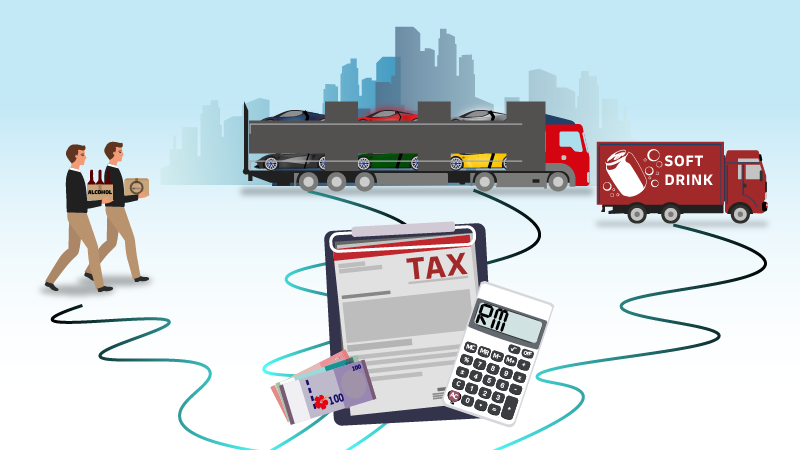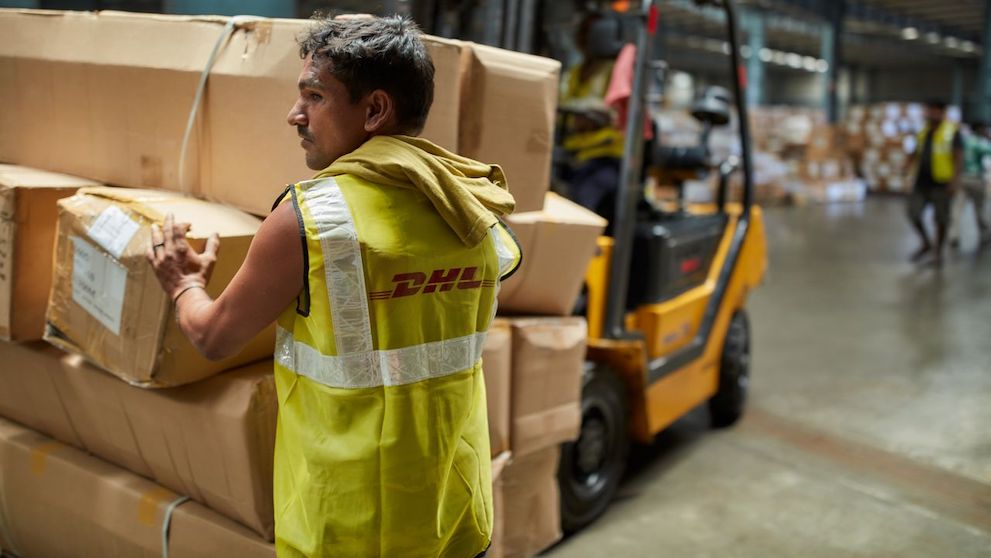Malaysia is a diverse and vibrant country with a rich culinary heritage. From its iconic hawker stalls to its Michelin-starred restaurants, Malaysian cuisine is loved by people worldwide. Iconic homegrown Malaysian brands such as Munchy's, Julie's, MAMEE, and Muster Potato are also now on the shelves of international stores.
According to Statista, the export value of food from Malaysia was valued at approximately MYR44.61 billion in 2022. With the exception of 2018 and 2020, the value of food exports from the country has been steadily increasing since 2012.
With such a tantalising array of offerings making global waves, how does one navigate the intricate maze of food exportation?
If you find yourself asking how to ship food from Malaysia, you’re at the right place. Be it exporting to an Asian country like Japan or exporting to a European country like Germany, navigating the process of food exportation requires a keen understanding of both Malaysian and international regulations. Here are five main things you need to know if you wish to ship your food and beverage products overseas from Malaysia.
Prohibited and Restricted Food Exports
Local businesses first need to identify the types of food products that are restricted or prohibited for export from Malaysia as well as restricted or prohibited items for imports to their destination countries.
These can include items at risk of carrying diseases, containing certain ingredients, or items protected for their cultural or historical significance.
For instance, food items such as turtle eggs are outright prohibited from being exported from Malaysia, according to Malaysian customs.
As for restricted goods, here are those which require an export licence or permit from relevant Malaysian authorities:
Any animal or bird other than a domestic animal or domestic fowl, whether alive or dead or any part thereof
Live animals from bovine species
Poultry
Meat of bovine animals
Cockles
Plants including orchids
Vegetables, fresh, chilled or frozen in excess of 3kg per consignment
Palm kernels and palm seeds.
Sugar and rice
Live prawns, shrimps, and fishes
Custom Duties, Taxes & Other Fees
Next, understanding the duties and taxes associated with food exports is another critical aspect to master for any business aiming to venture into the international market. These can vary depending on the destination country and significantly impact the cost and profitability of exporting goods.
Here’s a general overview of what fees to expect:
Customs Duties
These are the taxes levied on goods as they cross international borders. The rates can differ widely depending on the type of product, its value, and the country of import. Exporters must accurately classify their food products to determine the applicable customs duty rates.
Almost all exported goods have zero duties, except Malaysia’s main commodities such as crude and palm oil. The applicable rates vary with the classification of the goods and range from 0% to 10%, following ad valorem rates.
Additionally, tariffs paid on exported goods which were originally sourced from imports are eligible for a 90% refund under Malaysia’s Customs Act, 1976.
H3 Value Added Tax (VAT) or Goods and Services Tax (GST)
Many countries impose VAT or GST on imported goods, which Malaysian exporters should factor into the total cost of doing business overseas.
Other Fees
Some products might be subject to excise duties or additional fees during export, especially alcoholic and sugary beverages. These are typically levied to reduce consumption and encourage healthier choices among consumers.
Certain specialised or luxury food items, such as caviar, truffles, and premium meats, may be subject to additional duties or import restrictions as well. These fees are often in place to protect domestic industries or control the quality of products entering the market.
Specific products, mainly agricultural and live animal shipments, might also be inspected for quality, health, and safety reasons, which come with associated fees.
Free Trade Agreements
Fortunately, Malaysia had signed fourteen Free Trade Agreements (FTAs), including bilateral and regional pacts, which facilitated reduced or eliminated customs duties for certain trading partners. Countries covered under these FTAs range from regional neighbours like Australia and Japan to distant nations such as Chile and Turkey.
These FTAs allow for lower or zero customs taxes for businesses in Malaysia that wish to import or export goods. It means companies can gain a more competitive edge in the market, while also assisting with Malaysia’s economic sustainability.
Malaysian Export Documents
Besides being aware of the fees, proper documentation of your exports is mandatory. Shippers must possess all necessary documents to avoid legal issues or delays.
Here are the documents needed:
Air waybill: Issued by the air carrier, this contains information such as the quantity, type, and destination of the goods being carried.
Commercial invoice: When preparing your commercial invoice, include the name and address of the exporter and importer; description of the goods being exported; quantity and value of the goods, as well as payment terms.
Packing list: Detailed records of the products, including descriptions of goods, quantities, and weights, are necessary for customs clearance.
Health certificates: This document certifies that the exported food products are safe for human consumption. It is issued by the Malaysian Department of Veterinary Services (DVS) for animal products and the Malaysian Department of Agriculture (DOA) for plant products.
Certificates of origin: This document certifies that the goods being exported were produced in Malaysia. It is issued by the Ministry of International Trade and Industry (MITI).
Other documents: Other specific documents required, such as Halal, Kosher, and organic certificates, vary depending on the destination country and type of food products being exported.
Acquiring some of these export paperwork may take some time, so it’s prudent to begin this process well in advance.
Food Export Packaging
Other than being aware of the above, packaging also plays a pivotal role in ensuring the food products’ quality, safety, and integrity during transit. It protects the exports from physical damage, contamination, and environmental factors such as temperature, humidity, and light.
When choosing packaging for food, it is vital to consider the type of product being exported from Malaysia. Shipping delicate food items such as cereals and nuts? Choose plastic crates or boxes that are strong enough to protect them from physical damage.
Remember to also clearly label the package to indicate that it contains delicate ingredients and should be handled carefully. For instance, you can include "Keep Frozen" or "Handle with Care" labels.
Work with a Reliable Shipping Partner to Export Food & Beverage Products from Malaysia
Exporting food and beverages outside of Malaysia can help businesses tap into new overseas markets, expand their reach, and increase their profits.
However, different countries have distinct document requirements for export and standards for food safety, quality, labelling, and packaging. Ensuring food products are transported efficiently, safely, and within the required temperature range can also be challenging, especially for perishable goods.
That’s why it’s important to work with reliable logistics partners with experience in handling food and beverage exports. For instance, specialisation in end-to-end supply chain management with appropriate storage and transportation technology can help maintain the quality of your products during transit. Other comprehensive solutions such as temperature-controlled storage, real-time tracking, and swift delivery services can ensure the integrity of the exports from pick-up to delivery.
Whether you wish to send frozen food by courier or export tea products overseas, tailored services can also help to meet the specific requirements of each product category and adhere to both safety standards and regulatory compliances.
A global network and expertise in logistics make the process seamless, positioning your food export business for success in the international market. Let an experienced shipping company help your business transcend borders and offer your global audience a taste of Malaysia’s culinary riches.



